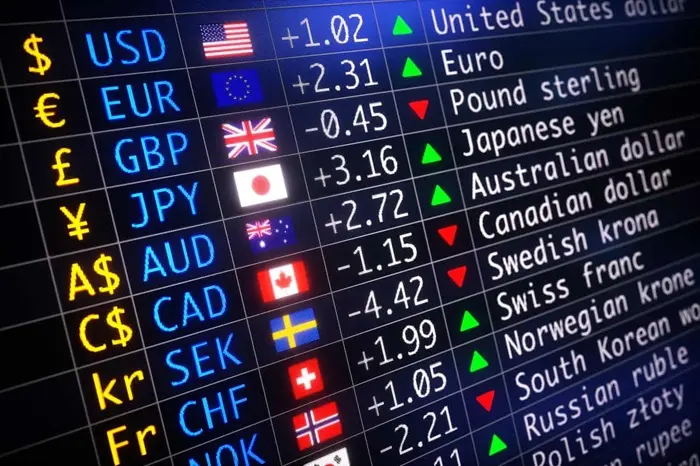Investing in stocks has become more accessible thanks to platforms like Cash App, which allow users to buy, sell, and manage their investments with ease. While buying stocks is straightforward, cashing out your investments may raise questions. Whether you need to liquidate your stocks for immediate financial needs or wish to reallocate your portfolio, understanding how to cash out your stocks on Cash App is essential. This article will guide you through the process of selling stocks on Cash App and cashing out the proceeds, explaining the steps, fees, timing, and considerations you should be aware of.
What Is Cash App and How Does It Work?
Cash App is a mobile payment service developed by Square, which allows users to send and receive money, buy and sell stocks, and invest in Bitcoin. The app has gained popularity due to its simplicity, ease of use, and low fees compared to traditional brokers. Cash App offers a feature known as Cash App Investing, which allows users to buy and sell stocks from a selection of over 4,000 individual stocks and exchange-traded funds (ETFs).
Cash App is particularly appealing to new investors because it doesn’t require large minimum investments. With as little as $1, users can invest in fractional shares of stocks, making it more accessible for beginners and those with limited capital.
Step-by-Step Guide: How to Cash Out Stocks on Cash App
If you’ve decided to sell your stocks on Cash App, the process is simple and involves several key steps. Let’s break it down.
1. Open Your Cash App
The first step in cashing out your stocks is to open the Cash App on your mobile device. Ensure you are logged into your account and have access to the Cash App Investing section. If you have not yet set up a Cash App Investing account, you will need to follow the registration process, which involves linking your bank account and providing identification for verification.
2. Navigate to the Investing Tab
Once you have logged into your Cash App account, you’ll need to navigate to the “Investing” tab. This section can be found by tapping on the “Investing” option on the home screen. This will take you to a page where you can view your portfolio, including any stocks you own, their current value, and recent performance.
3. Select the Stock You Want to Sell
In your portfolio, you will see a list of the stocks you own. Tap on the stock you want to sell. This will bring up the details of that stock, including the number of shares you own and the current market price. It’s essential to check the current value of the stock before selling, as stock prices can fluctuate throughout the day.
4. Tap “Sell”
After selecting the stock you wish to cash out, tap the “Sell” button. Cash App will ask you how many shares you want to sell. You can choose to sell all your shares or a portion of them, depending on your preference. Once you’ve decided on the number of shares to sell, proceed to the next step.
5. Review the Transaction
Before completing the sale, Cash App will show you a review screen where you can double-check the details of the transaction. This will include the number of shares, the current market price, and the total value of the sale. Review the information carefully to ensure everything is correct. Cash App will also provide an estimate of how much money you will receive after the sale, taking into account any fees.
6. Confirm the Sale
Once you’ve reviewed the transaction, confirm the sale by tapping “Confirm” or “Sell.” Cash App will process the order, and your shares will be sold at the current market price. The transaction typically takes a few seconds to complete, and you will receive a notification once the sale is confirmed.
7. Wait for the Funds to Settle
After the sale, the proceeds from your stock sale will appear in your Cash App balance. However, it’s important to note that Cash App uses a standard settlement period of up to two business days for stocks. This means that while the sale will be reflected in your account immediately, you may not be able to withdraw the funds or transfer them to your bank account until the settlement period is complete.
8. Transfer Funds to Your Bank Account
Once the funds have settled and are available in your Cash App balance, you can choose to transfer the money to your linked bank account. To do this, go to the “Banking” section of the app and select “Cash Out.” You will be given the option to choose between a standard transfer (which typically takes 1-3 business days) or an instant transfer (which incurs a small fee but completes the transfer immediately).
Once you select your preferred transfer method, confirm the details, and the money will be transferred to your bank account.
Cash App Fees and Charges for Selling Stocks
While Cash App offers many advantages, such as no account minimums and fractional shares, it’s important to be aware of any fees involved in cashing out your stocks. Here’s a breakdown of the fees you may encounter:
1. Stock Transaction Fees
One of the most appealing aspects of Cash App is that it doesn’t charge a commission for buying or selling stocks. Unlike traditional brokers that charge a fee for each trade, Cash App allows you to trade stocks without paying a transaction fee. This makes it an attractive option for beginner investors and those looking to minimize costs.
2. Instant Transfer Fees
While transferring funds to your linked bank account is free with the standard transfer option, Cash App charges a small fee for instant transfers. This fee is typically around 1.5% of the total amount being transferred. If you need immediate access to your funds, this fee is a convenient option, but it’s important to factor this cost into your decision-making.
3. Foreign Exchange Fees (If Applicable)
If you are selling stocks in foreign companies that require currency conversion (e.g., investing in international stocks), Cash App may charge a foreign exchange fee. These fees vary depending on the currencies involved but are generally competitive with industry standards.
Timing of Cashing Out Stocks on Cash App
The timing of cashing out stocks on Cash App can affect the proceeds you receive, as stock prices fluctuate throughout the day. It’s important to understand the following timing factors:
1. Market Hours
Cash App allows you to buy and sell stocks during regular market hours, typically from 9:30 AM to 4:00 PM Eastern Time on weekdays. Orders placed outside of market hours will be executed when the market reopens. The price you receive when selling stocks will depend on the market price at the time of the transaction.
2. Settlement Period
As mentioned earlier, Cash App uses a standard settlement period of up to two business days for stock transactions. This means that while the sale may be processed immediately, the funds may not be available for withdrawal until after the settlement period is complete.
3. Market Volatility
Stock prices can be volatile, especially during periods of high market activity. If you’re planning to cash out your stocks, consider monitoring the market for a period of stability to get the best possible price. Be prepared for fluctuations and adjust your strategy accordingly.
Considerations Before Cashing Out Your Stocks
While cashing out your stocks on Cash App is a straightforward process, there are a few important considerations to keep in mind before you make the decision to sell.
1. Your Investment Goals
Before selling stocks, it’s important to reassess your investment goals. If you’re cashing out because you need liquidity for immediate expenses, this may be the right decision. However, if you’re selling to lock in profits or due to market volatility, it’s essential to consider your long-term financial objectives. Remember that investing in stocks is typically most beneficial for long-term growth.
2. Tax Implications
Selling stocks may have tax implications, especially if you’ve made a profit from your investments. In most cases, profits from selling stocks are subject to capital gains taxes. The amount you owe will depend on how long you’ve held the stock (short-term or long-term) and your income tax bracket. Be sure to consult a tax professional to understand how selling your stocks on Cash App may affect your taxes.
3. Reinvesting Your Earnings
Instead of cashing out entirely, you may choose to reinvest your earnings into other stocks or assets. This can help you continue to grow your wealth over time. Cash App offers the option to reinvest your proceeds into additional stocks or ETFs, providing you with a flexible and simple way to manage your portfolio.
Conclusion
Cashing out your stocks on Cash App is a simple process that allows you to access your investment funds when needed. By following the outlined steps, you can sell your stocks, wait for the funds to settle, and transfer them to your bank account. While Cash App doesn’t charge transaction fees for buying and selling stocks, it’s important to consider other fees, such as those for instant transfers, as well as the timing of your transactions.
Before cashing out, always assess your investment goals and be mindful of the potential tax implications. Whether you need funds for an emergency, wish to lock in profits, or plan to reinvest in other assets, Cash App offers a user-friendly platform for managing your investments.































